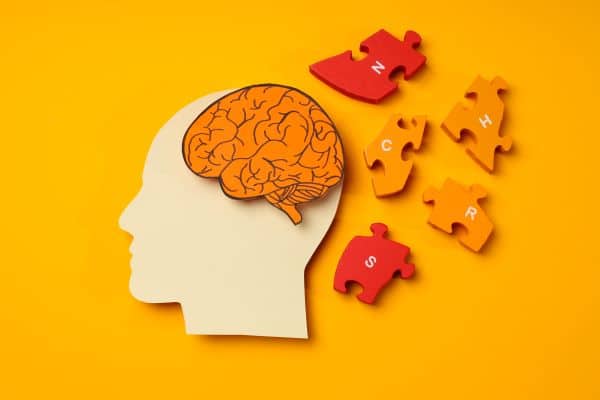Vitamin B12, a crucial nutrient for maintaining nerve health and producing red blood cells, often goes unnoticed in daily diets. Deficiencies in this essential vitamin can lead to a myriad of health issues, ranging from physical ailments to psychological disturbances. Despite its critical role in overall health, many are unaware of the signs that indicate a lack of this vitamin. This post delves into the various symptoms and manifestations of Vitamin B12 deficiency, aiming to raise awareness and promote early detection for better health outcomes.
Contents
Understanding Vitamin B12

Vitamin B12 plays a pivotal role in the body, essential for the production of red blood cells and the maintenance of a healthy nervous system. Its daily requirement, though small, is often unmet due to dietary restrictions or absorption issues. Found predominantly in animal products, Vitamin B12 is a common concern for vegetarians and vegans. Additionally, certain health conditions and age-related factors can impair its absorption, making supplementation necessary for some individuals.
Recognizing the causes of Vitamin B12 deficiency is as crucial as understanding its functions. Often stemming from limited dietary sources, the deficiency also arises from malabsorption issues related to gastrointestinal disorders or certain medications. Older adults, those with vegan diets, and individuals with conditions like pernicious anemia or Crohn’s disease are particularly at risk. Awareness of these risk factors can guide preventive measures and dietary adjustments to ensure adequate intake of this vital nutrient.
Physical Symptoms Of B12 Deficiency

One of the most notable signs of Vitamin B12 deficiency is anemia, characterized by fatigue, weakness, and a general sense of lethargy. Anemia arises when the body lacks sufficient red blood cells to carry oxygen effectively, a condition directly linked to inadequate B12 levels. Individuals might experience breathlessness, dizziness, and a pale complexion as part of these anemic symptoms, often leading to a significant decrease in energy levels and physical stamina.
Neurological changes are another significant indicator of B12 deficiency, often manifesting as tingling sensations in the hands and feet. This numbness or pins-and-needles feeling, medically termed as peripheral neuropathy, results from nerve damage caused by low B12 levels. Over time, this can lead to balance problems and increased risk of falls, particularly in the elderly. Early detection and treatment are crucial to prevent irreversible nerve damage.
Mental And Emotional Signs

Cognitive impairments are a significant concern in Vitamin B12 deficiency, often presenting as memory loss and difficulty in concentrating. These symptoms can be subtle and mistaken for normal aging, but they signify an underlying nutritional issue. The brain’s functioning heavily relies on adequate B12 levels; hence, a deficit can lead to noticeable changes in cognitive abilities, including confusion and reduced mental clarity.
Mood changes are another crucial aspect of B12 deficiency. Symptoms like depression and irritability can often be misattributed to other causes, yet they are common in those with low B12 levels. This link highlights the importance of considering nutritional factors in mental health assessments. Regular monitoring and appropriate supplementation can alleviate these symptoms, demonstrating the profound impact of nutrition on mental well-being.
Oral Health And Vitamin B12 Deficiency

Glossitis, characterized by a swollen, inflamed tongue, is a less known yet telling sign of Vitamin B12 deficiency. This condition can lead to pain and difficulty in eating, speaking, or swallowing. Additionally, mouth ulcers and changes in taste sensation are also linked to low levels of this vitamin, further emphasizing its role in maintaining oral health.
The connection between oral health and overall B12 deficiency symptoms underscores the systemic nature of this nutritional issue. Dental professionals can play a pivotal role in early detection by noting these oral signs, which often precede more severe systemic manifestations. Addressing B12 deficiency can lead to significant improvements in oral health and overall well-being.
Impact On Skin And Hair

Pale or jaundiced skin is a common physical manifestation of B12 deficiency, primarily due to the resultant anemia. The lack of adequate red blood cells can give the skin a washed-out or yellowish appearance, often overlooked in the early stages. These skin changes serve as a visual clue, prompting further investigation into potential nutritional deficiencies.
Hair changes, such as loss, thinning, or alterations in texture, can also indicate a B12 deficiency. While often attributed to aging or stress, these hair issues can stem from inadequate nutrient intake. Addressing the deficiency often leads to improvements in hair health, highlighting the nutrient’s role in maintaining healthy skin and hair.
Digestive Issues And Appetite Changes

Gastrointestinal symptoms, including nausea, diarrhea, or constipation, are often linked to Vitamin B12 deficiency. These symptoms can vary in intensity and duration, sometimes leading to misdiagnosis. The digestive system’s smooth functioning depends on adequate B12 levels, and a deficit can disrupt this balance, leading to uncomfortable and persistent digestive issues.
Loss of appetite and subsequent weight loss are also common in those with B12 deficiency. This reduced desire to eat can exacerbate nutritional deficits, creating a vicious cycle of worsening symptoms. Addressing the underlying deficiency often restores normal appetite and stabilizes weight, showcasing the importance of a balanced diet in maintaining digestive health.
The Bottom Line
Vitamin B12 deficiency, while common, often goes unnoticed due to the subtlety of its symptoms. Recognizing these signs – from mental and emotional changes to physical manifestations like anemia and oral health issues – is crucial for timely intervention. Early detection and appropriate treatment can significantly improve quality of life, demonstrating the importance of this essential nutrient in overall health. Regular screenings, especially for high-risk groups, and a balanced diet are key in preventing and managing B12 deficiency.


